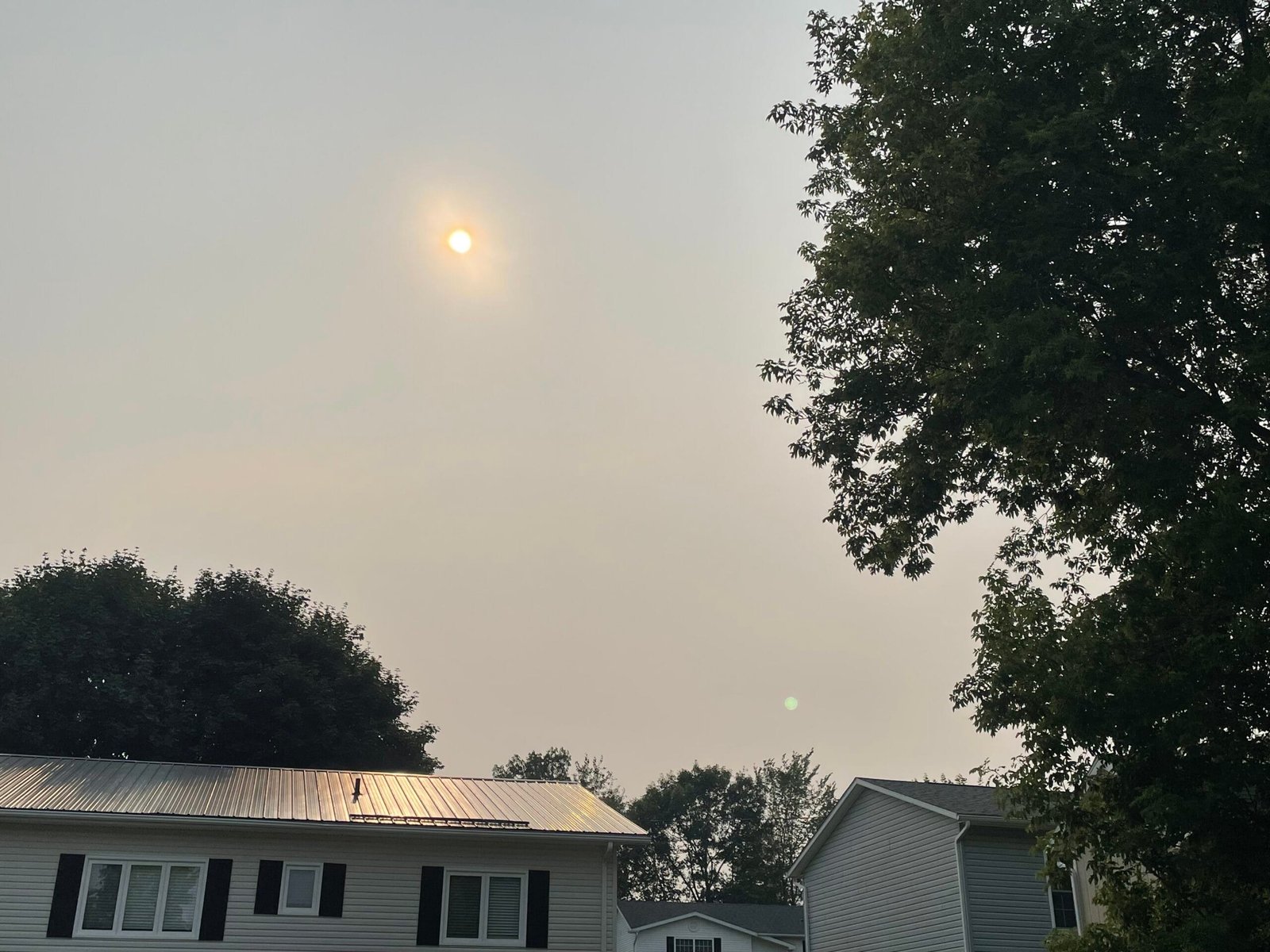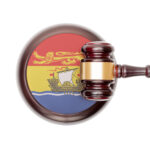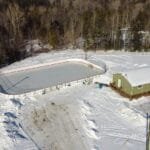Statement says smoke from wildfires could impact people with certain health conditions
Smoke is causing or expected to cause poor air quality and reduced visibility in Carleton County and most of northern New Brunswick.
In a weather statement issued today, the government agency said, “smoke from distant forest fires may cause a reduction to air quality.” Environment Canada issued the special air quality statement for Woodstock, Carleton County, and the rest of northern New Brunswick.
They expect these conditions to persist this evening and overnight.
Environment Canada blamed the smoke from wildfires in the prairies for drifting across the region.
“Although most of the smoke is expected to remain aloft, some may settle near the ground and contribute to reduced air quality. Air quality is expected to improve early tomorrow as a cold front moves through the province,” it said in a public statement.
The alert noted that people more likely to be impacted by wildfire smoke, including people aged 65 and older, pregnant people, infants and young children, people with an existing illness or chronic health condition, and people who work outdoors, should avoid strenuous activities outdoors and seek medical attention if experiencing symptoms.
The statement also said that as smoke levels increase, health risks increase. Environment Canada is urging people at high risk to limit time outdoors, consider reducing or rescheduling outdoor sports, activities and events.
“You may experience mild and common symptoms such as eye, nose and throat irritation, headaches or a mild cough. More serious but less common symptoms include wheezing, chest pains or severe cough. If you think you are having a medical emergency, seek immediate medical assistance,” the statement noted, adding that people, when indoors, should keep windows and doors closed as much as possible.
The statement also added that when there is an extreme heat event occurring with poor air quality, people need to prioritize keeping cool.
“Protect your indoor air from wildfire smoke. Actions can include using a clean, good-quality air filter in your ventilation system and/or a certified portable air cleaner that can filter fine particles. If you must spend time outdoors, a well-constructed, well-fitting and properly worn respirator-type mask (such as a NIOSH-certified N95 or equivalent respirator) can reduce your exposure to the fine particles in the smoke. Even though exposure may be reduced, there can still be risks to health,” said the statement.
Learn more at canada.ca/wildfire-smoke. People can also visit airhealth.ca for information on how to reduce their health risk and their personal contribution to pollution levels, as well as for current and forecast AQHI values.
You can continue to monitor alerts and forecasts issued by Environment Canada by visiting weather.gc.ca.















